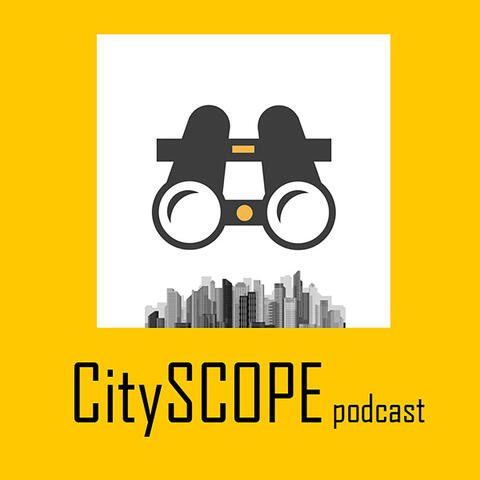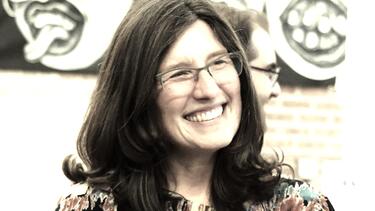CitySCOPE Podcast
Welcome to CitySCOPE, a podcast about cities and inclusive economic development from Kate Cooney and her students at the Inclusive Economic Development Lab at the Yale School of Management.

Subscribe to CitySCOPE Podcast in Apple Podcasts, Spotify, Google Podcasts, or your favorite podcast player.
Episodes
- Podcast
Real Integration in Public Schools #stillnotequal
On episode 4 of the CitySCOPE Podcast, Arianna Blanco and Naomi Shachter, co-hosts from episode 3, continue the conversation about race and place focusing this week on education. We speak with Barbara Biasi of the Yale School of Management on the role of finance in shaping racial and class based inequities in public schools and efforts to remediate them. Biasi describes the highly decentralized nature of public education in the United States, resulting in a trade-off between local control and inter-district funding equity. We also interview Sarah Medina Camiscoli, founder and former executive director of IntegrateNYC, a youth-led organization seeking integration and equity in New York public schools, on their efforts to integrate the largest, and also one of the most segregated, public school districts in the country.
![Real Integration in Public Schools #stillnotequal]()
- Podcast
Geography of Race and Space
Americans live in a landscape of race and space inherited from an earlier era. How do historical narratives about the places we call home shape our understanding of them? What is left out of those narratives? And how can new understandings spark movements that drive equitable economic development?
![Geography of Race and Space]()
- Podcast
Community Engagement and Housing
This week, on episode 2 of the CitySCOPE podcast, Joy Chen, Charles Gress and Kate Cooney speak with Anika Singh Lemar and David Schleicher, both from Yale Law School about the ways in which land use community engagement practices might actually hinder rather than help the development of new housing supply. Access to safe, suitable, and affordable housing is a cornerstone of inclusive community and economic development, but cities around the United States are experiencing significant shortages in affordable housing and housing supply in general does not always keep up with demand. We discuss models to overcome barriers to equitable participation processes in affordable housing development. We also discuss how process reforms, such as procedural rules, "zoning budgets" and comprehensive plans with binding targets, might allow for more housing supply.
Tune in for an interesting conversation!![Community Engagement and Housing]()
- Podcast
Rethinking Community Engagement
In episode 1, Allen Xu and Kate Cooney talk to Elihu Rubin, from the Yale School of Architecture about his work on the built environments of the 19th and 20th centuries. In thinking about the American landscape of wealth, poverty, race and space, a first step in mobilizing for new arrangements is to consider how a city's current landscape encapsulates notions of place-making from earlier eras. These earlier era settlements live on in both the built environment and in the mental and emotional models of space in cities that structure the American mind. Elihu Rubin's work on critical heritage sheds light on how the past is both elided and selectively commemorated in building reuse. We also speak with Robert Shiller, Nobel Prize-winning economist from the Yale School of Management, about his new book Narrative Economics: How Stories Go Viral and Drive Major Economic Events. Both of these conversations help us set up our themes for Season 2 of the CitySCOPE podcast. We conclude with a snapshot of the conversations to come over the future 7 episodes of the 2020 season
![Rethinking Community Engagement]()
- Podcast
Opportunity Zones in New Haven and Final Reflections
Opportunity Zones in New Haven and Final Reflections, podcast hosts Song Kim, MBA candidate and Professor Kate Cooney begin by reviewing the work done in the Spring 2019 Inclusive Economic Development Lab class, where teams of students learned about 4 neighborhoods in New Haven that contain OZ tracts and made suggestions about how the models we studied (Food Halls, Fab Labs, CLTs) might be deployed in each neighborhood. The neighborhoods are: Hill South, Dixwell, Newhallville and Fair Haven. Next, Song and Kate review some of the key insights from the interviews with the guests we met over Season 1 of CitySCOPE podcast and highlight some general takeaways about the challenges and opportunities in inclusive economic development work. We finish with some general reflections of our own.
![Opportunity Zones in New Haven and Final Reflections]()
- Podcast
Creative Financing for Community Inclusion
Creative Financing for Community Inclusion, podcast hosts Nina Crook, graduate of Yale SOM with a Masters in Global Business and Society and Camilo Monge, MBA guide listeners through a series of conversations exploring different models of creative financing to build inclusive models for economic development and make possible investments in innovation that maximize community benefit. Guest interviews with: Joe Evans from The Kresge Foundation, Aliana Pineiro from Boston Impact Initiative, Greg Reaves from Mosaic Development Partners and Eric Letsinger from Quantified Ventures. Topics covered include: use of impact covenants for Opportunity Funds to differentiate funds with community benefit commitments, crowdfunding and other strategies to share the wealth potential of OZ projects with community members, and environmental impact bonds as another arrow in the quiver for municipalities layering OZ projects alongside other investments as part of a broader OZ development planning process.
![Creative Financing for Community Inclusion]()
- Podcast
Fab Labs and Maker Spaces in the New Economy
Fab Labs and Maker Spaces in the New Economy, Liam Grace Flood, MBA candidate at the Yale School of Management speaks with two guests on the origins and potential of the Fab Lab and Maker Space movement: Joel Cutcher-Gershenfeld, Professor from the Heller School for Social Policy and Management at Brandeis University and Jerry Davis, Associate Dean for Business and Impact at the Ross School of Business at the University of Michigan. Topics covered include: the third digital revolution, the potential for Fab Labs and Maker Spaces to create opportunities for self-sufficient production, the future of fabrication technologies and local versus corporate control of them, fabrication and implications for the future of work, and emerging practices for local governance and stakeholder control of Fab Lab networks. Before coming to Yale, Liam Grace-Flood, the podcast host for episode 6, spent a year exploring makerspaces and their broader context across Europe, South Asia, and South and East Africa as a Watson Fellow. Many of his learnings were published in an often-weekly column for Make: Magazine called Open World.
![Fab Labs and Maker Spaces in the New Economy]()
- Podcast
The Food Hall Trend and Inclusive Growth
The Food Hall Trend and Inclusive Growth, podcast hosts Sara Harari, recent graduate of the Yale SOM and the Yale School of Forestry and Environmental Studies and Dan Bitner, MBA from Yale SOM help listeners understand just what is the difference between a food hall and a food court, the evolution of food halls over the last 10-15 years, and the economics of how they work both from the developer and the food entrepreneur’s perspectives. With Guests James Johnson-Piett from Urbane Development in Brooklyn, NYC and Nancy Halpern Ibrahim from the Mercado de Paloma in South Central Los Angeles, Sara and Dan explore the ways that Food Halls can be anchors for cultural exchange and celebration, for cross class interaction, and, in the case of the Flatbush Caton Market redevelopment underway at Urbane, even cater to a global diaspora while remaining firmly rooted in a local community. The episode also features a short cutaway to hearing about the role of the Food Hall at the Pythian Market in New Orleans and the work of Julius Kimbrough at the Crescent City Community Land Trust.
![The Food Hall Trend and Inclusive Growth]()
- Podcast
Investing in Businesses in Opportunity Zones
Investing in Businesses in Opportunity Zones, Professor Kate Cooney explains the current status of OZ regulation related to business investment and highlights the key questions about these regulations that have slowed down investor action in this area and also the tensions in play around community benefit. Dr. Cooney leads listeners through a series of models for supporting local entrepreneurs in OZs, including mixed use housing developments with ground floor commercial that might be both amenable to OZ investments and supportive of the growth of local entrepreneurs, a corner store Bodega economic development program yielding real results, impact investment funds focused on helping small and medium size businesses grow along with the regional economy in gentrifying neighborhoods, and an arts based economic development project with business and neighborhood development in its sights.
![Investing in Businesses in Opportunity Zones]()
- Podcast
Community Land Trusts, Gentrification and the OZ
Community Land Trusts, Gentrification and the OZ, Dan Bitner, MBA speaks with Julius Kimbrough from the Crescent City Community Land Trust in New Orleans, Louisiana, and Val Orseli from Cooper Square Mutual Housing Association in NYC’s Lower East Side. In this episode, we explore gentrification pressures and how CLTs can act as a bulwark for affordability in rapidly changing neighborhoods. Dan Bitner leads listeners through the basics of how CLTs operate and learns about innovations on the CLT model from our guests. These innovations include: the scattered site CLT in the Lower East Side which now encompasses over 20 buildings, and the use of predial servitude and deed restrictions in mixed income, mixed use buildings such as the newly restored Pythian building in New Orleans. We end by asking our guests for their insights into the current opportunities and challenges for the CLT model.
![Community Land Trusts, Gentrification and the OZ]()










